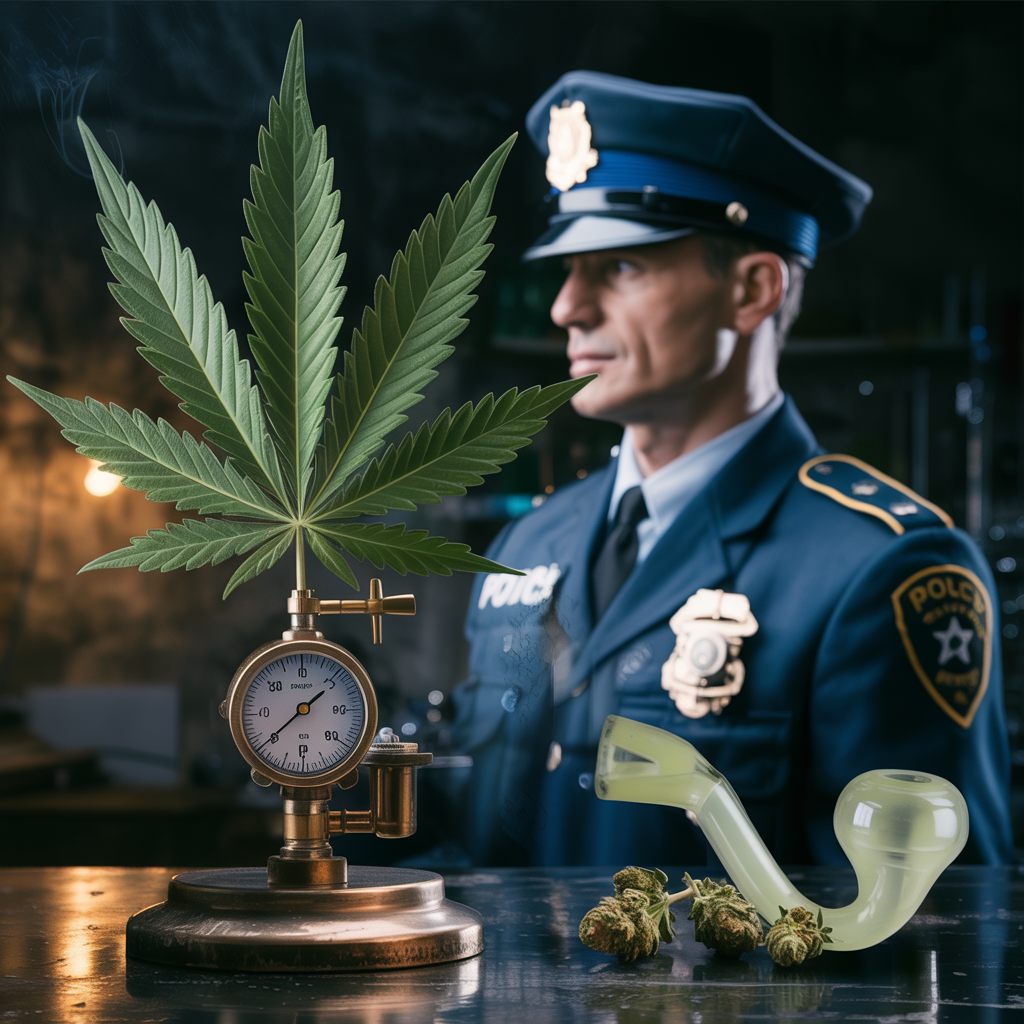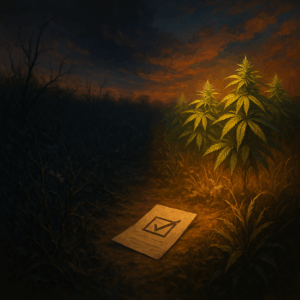Arizona police turn to “green labs” for marijuana DUI training, aiming to detect real impairment rather than THC presence.
When Arizona voters passed Proposition 207 in 2020, they ushered in a new era for cannabis. Recreational use became legal, dispensaries flourished, and the plant shed decades of stigma.
Yet legalization left one thorny question unsettled: how should police fairly and effectively enforce laws against marijuana-impaired driving?
Five years later, the state finds itself at a crossroads. Lawmakers, courts, and law enforcement agencies are struggling to reconcile a legal cannabis industry with a DUI framework originally built around alcohol. At the heart of this challenge is an ambitious training experiment known as the “green lab.”
Arizona’s DUI Laws and the Courts’ Course Correction
Arizona’s DUI statute, §28‑1381(A)(3), prohibits driving with “any drug defined in §13‑3401 or its metabolite” in one’s system. For cannabis users, this meant that for years—even long after intoxication faded—traces of THC metabolites could trigger DUI charges.
That changed through a series of court rulings. In 2014, the Arizona Supreme Court barred convictions based solely on metabolites, acknowledging they can linger days or weeks after use. A 2015 decision further protected medical marijuana patients, affirming that their cardholder status could serve as a defense if no actual impairment was shown.
Most recently, in October 2024, the Court of Appeals underscored that “unimpaired driving after consuming marijuana cannot be penalized.” The ruling reinforced voter intent under Prop 207: legality means nothing if citizens remain punished for legal behavior.
Even so, Arizona law still bans driving while impaired “to the slightest degree.” That standard makes sense with alcohol, where blood-alcohol content correlates well with impairment. Cannabis, however, plays by different rules.
The Science: Why THC Doesn’t Behave Like Alcohol
Unlike alcohol, THC resists easy measurement. Metabolites—both active and inactive—do not reliably correlate with intoxication. Someone may register five nanograms of THC in their blood yet perform normally, while another with just one nanogram might drive erratically. Studies have shown that saliva, blood, and urine testing often fail to predict real-time impairment.
The U.S. Department of Justice confirmed the dilemma in 2021: police officers misidentified cannabis impairment half the time when relying on standard field sobriety tests. THC’s effects vary dramatically based on tolerance, consumption method, and individual biology. To date, no universally accepted threshold exists for marijuana impairment.
That scientific gap has profound implications for both public safety and justice. On one hand, cannabis can undeniably impair drivers and contribute to collisions. On the other, outdated enforcement risks ensnaring sober medical patients and responsible adult consumers. Arizona’s courts have insisted that the state strike a fairer balance. Enter the “green lab.”
What Are ‘Green Labs’?
Modeled after “wet labs” that train officers using alcohol-intoxicated volunteers, green labs immerse police in live cannabis use scenarios. Volunteers consume flower, vape cartridges, or THC-infused edibles under controlled conditions. Officers observe their behavior, administer field sobriety tests, and sometimes collect blood or saliva samples.
The goal is twofold: give officers hands-on experience with the wide variability of cannabis effects, and improve testimony in court by grounding observations in direct training.
In August 2025, Arizona officials traveled to Las Vegas to observe a green lab program firsthand, with plans to launch their own by 2027—or sooner.
Sgt. George Chwe, state drug recognition coordinator and Mesa police officer, emphasized that law enforcement does not intend to criminalize all cannabis use. “We don’t want the public to think because they smoked marijuana that they’re going to get a DUI,” Chwe told The Arizona Republic. “That is not the goal of law enforcement, and we don’t want the public’s perception to be that, especially after the voters decided to make it legal.”
Controversy: Field Sobriety Tests Under Scrutiny
Defense attorneys remain skeptical. They argue that green labs could legitimize field sobriety tests designed for alcohol, not cannabis.
Phoenix attorney Brenna Fisher noted that “bloodshot eyes” and “fumbling during a walk-and-turn” may be poor indicators of cannabis impairment. A driver might fail tests despite being unimpaired—or pass them despite being dangerously high.
Indeed, the 2021 DOJ study found that half of placebo participants were wrongly judged impaired. Critics like defense attorney Armando Nava warn that green labs may ultimately serve prosecutors by buttressing unscientific methods, keeping DUI enforcement profitable rather than fair.
“DUI is still big business,” Nava argued, cautioning that state-sponsored labs could prioritize arrests over truth.
Judges, however, have been nuanced. In a Mesa case, Maricopa County Superior Court Commissioner Julie LaFave ruled that sobriety tests can be used as one tool, provided they are not the only tool.
The ruling reflects the state’s evolving attempt to balance science, practicality, and due process.
Policy Implications: From Presence to Proof
Prop 207’s passage signaled more than legalization. It enshrined voter intent that lawful cannabis use should not translate into automatic criminal liability. Enforcement, the courts insist, must hinge on actual impairment.
Green labs represent one way to adapt. By grounding officer training in real-world cannabis use, Arizona hopes to shift DUI enforcement away from metabolite numbers and toward behavioral evidence. Whether this effort reduces wrongful arrests—or entrenches flawed practices—remains to be seen.
Meanwhile, Arizona’s cannabis industry, including legacy dispensaries like GreenPharms, watches closely. If police training evolves responsibly, consumers gain greater assurance that enjoying a joint or edible at home won’t land them in court the next day. Conversely, if enforcement continues to rely on shaky science, patients and adult-use consumers may remain vulnerable.
A State in Transition
Fifteen years ago, Arizona was prosecuting medical marijuana patients for trace metabolites. Today, voters, courts, and policymakers demand more scientific rigor and fairness. The rise of green labs underscores both the challenge and the opportunity: to create a DUI enforcement system that recognizes cannabis’s complexity without compromising safety.
As Sgt. Chwe put it, the ultimate goal is clarity—for officers, for courts, and for citizens. Arizona’s next step will test whether green labs can deliver it.

***
GreenPharms is more than just a dispensary. We are a family-owned and operated company that cultivates, processes, and sells high-quality cannabis products in Arizona. Whether you are looking for medical or recreational marijuana, we have something for everyone. From flower, edibles, concentrates, and topicals, to accessories, apparel, and education, we offer a wide range of marijuana strains, products and services to suit your needs and preferences. Our friendly and knowledgeable staff are always ready to assist you and answer any questions you may have. Visit our dispensaries in Mesa and Flagstaff, or shop online and get your order delivered to your door. At GreenPharms, we are cultivating a different kind of care.
Follow us on social media






